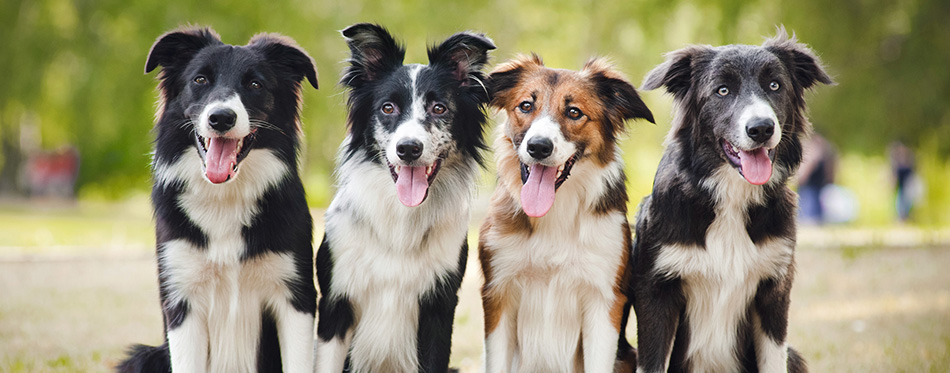Our dogs know a lot about us. From the way we smell to the sound of our footsteps. They can spot us miles away and know when we aren’t having the best day. In contrast, we know very little about our dogs. Yet, they are supposedly man’s best friend. For all you know, the German shepherd you’ve had for years could be a Belgian Malinois. As shocking and uncomfortable as this reality is, you can’t be 100% sure it isn’t true unless you have carried out DNA testing on your dog.

Why Do You Need To Have Your Dog Tested?
Your dog’s physical attribute is not always a correct interpretation of its genetic breed. Carrying out a dog DNA test helps you know for sure what breed your dog is and maps out its origin and heritage. Dog DNA testing can benefit your dog’s health and help you take precautionary measures if and when necessary. Some of the reasons for testing your dog are listed below.
Know Your Dog’s Breed
Guessing a dog’s background by its looks is just like judging a book by its cover; your conclusions are seldom correct. You may think your dog is a Whippet because of how it looks and sounds, but a dog DNA test may reveal it to be a Greyhound.
According to veterinarians and experts on dog genetics, the physical appearance of a dog often has little to do with its genetic makeup. Research involving almost 6000 dog experts and 100 dogs showed that dog experts could only correctly guess the dog’s breed 27% of the time. Identifying a dog’s breed by its look or form is an uphill task and hardly ever correct. To be emphatically sure, get your dog tested.
Detect Potential Diseases They Could be Carrying
There are over 150 canine genetic health conditions. With more research, this number increases. Dog DNA tests detect these diseases and let you know if your dog is a carrier, a sufferer or has a heightened risk of developing them. Armed with this information, you can better protect your pet or start the treatment early enough. If you are a dog breeder, testing your stock helps you prevent inherited diseases developing in the upcoming generation.
Understand Your Dog’s Behavior
Does your dog do things that constantly astound you? Like always barking at everything that moves or constantly digging up your garden or rounding up animals at the park? It may have something to do with its ancestry. Getting it tested will throw more light on its strange and probably worrisome quirks.
Thoroughbred and Mixed-breed Dog Owners
If you are breeding thoroughbred dogs, a dog DNA test can serve as breed certification. It will also help you decide the degree of genetic diversity inbreeding which is crucial for inbreeding purebred dogs. If you own a dog of mixed breed and are curious of its ancestry, a dog DNA test is the only way to know for sure.
Predict Their Weight Range
Knowing the correct ancestry of your dog will help you estimate how big your dog will be at full adult size. This information will enable you to know if your dog is attaining the ideal weight for healthy dogs of its age.
What Do Dog DNA Tests Check For?
This entirely depends on the brand you go with. Most brands provide an exhaustive report on the dog’s ancestry including details such as its weight potentials. The tests check for the following and more:
- Breed identification: This is a basic report provided by all major dog DNA testing brands. They let you know the exact breed your dog is.
- Dog’s ancestry: The dog DNA test report traces the great-grandparents of your dog and presents you with an outline of the dog’s genealogy.
- Health: This includes insight into possible health concerns affecting its particular breed. The result covers genetic mutation for hundreds of canine health conditions and shows you the risks for developing some hereditary diseases.
- Traits and behavioral insight: They also provide information regarding the personality of your dog.
- MDR1 Genetic mutation: Some brands test for genetic mutation involving multi-drug resistance. This can help dog owners prevent harmful drug reactions.
- Vet report: Most test results include an incisive vet report to help you and your vet plan the best care for your dog.

How Does Dog DNA Testing Work?
99% of your dog’s DNA is identical to other dogs. There are small segments across each dog’s genome which vary. These variations are what make your dog unique. Dog DNA testing involves analyzing these small segments or “markers” and using them to generate your dog’s DNA profile.
- At home
The dog DNA testing process is quite simple. Just like human DNA testing, you buy a dog DNA testing kit and do it at home, after which you mail it back to the lab you bought it from. Inside the dog DNA testing kit are materials used for collecting the DNA sample and some instructions to guide you through. You are required to take a DNA sample from your dog through a cheek swab. When it is done, the sample is sealed up using the materials provided in the kit and mailed back to the lab.
- At the lab
Like humans, dogs have two copies of their genes. Each copy is inherited from one parent; one from the mother, the other from the father. At the lab, the swab is studied and the DNA extracted. The scientists work on each copy using the swab and trace the ancestry of your dog. This is done using a DNA microarray with thousands of markers. This process produces an extremely thorough analysis of the dog’s genome which is run through bioinformatics pipeline.
After a series of inspection and safety checks, different algorithms are used to go through every chromosomal segment in your dog’s DNA. The test involves various probable genetic ancestry permutations before arriving on the exact one.
Are The Results Accurate?
Dog DNA test results are generally accurate. However, the level of accuracy largely depends on the brand as some brands are more trustworthy and precise with their reports than others. There have been many cases where dog owners were shocked or flat out rejected their dog DNA test. This can happen if:
The dog looks nothing like the breed reported: Dog owners are often baffled when a DNA test result tells them their dog is a different breed from what it looks like. When going through your dog DNA test report, remember that looks are not a strong determinant of a dog’s genetics. Therefore, dogs often have visual attributes of breeds from distant relatives.
You believed your dog to be a thoroughbred: If you coughed out a lump sum of money for a purebred and a DNA test tells you it is a mutt, chances are you will doubt the accuracy of the test. Before rejecting the result, know that a lot of breeders are not honest about the ancestry of their dogs. To be on the safe side, demand for a dog DNA test as verification or insist that the test be carried out before buying.
Your veterinarian already told you your dog was a different breed: if your vet told you your dog was a Terrier, it would be difficult to accept a report saying it is a Dachshund. That notwithstanding, vets make assumptions based on the dog’s physical appearance just like most people. So don’t discard the result just yet.
What Can Affect The Accuracy Of The Result?
Dog DNA test results are not 100% accurate. Human error, as well as other factors, often contribute towards the precision of the results. They include:
- The DNA breed database: The higher the number of the breeds in the database of your preferred dog DNA testing lab, the more accurate your results will be. A lab with millions of breeds in their database will invariably produce more detailed and accurate results than one with thousands. For this reason, you must research the lab before you choose them for your dog DNA testing.
- The DNA sample: Even though it is more convenient for dog owners to take DNA samples of their dogs themselves, it also creates more room for error. There may be mistakes in sample collection or packaging which can tamper with the accuracy of the result.

To Summarize
As simple as having your dog’s DNA tested is, it could be quite emotional and satisfactory. Knowing so much about your dog not only quells your curiosity but also makes you feel like you found a missing clue about your close friend. It also brings clarity and understanding as regards to your dog’s personality and health.
The whole process takes 2-8 weeks, depending on the lab you choose. Customized reports are also available for designer dogs, mutts and purebreds. However, you must take the test with an open mind and leave room for surprises.
Source:
- Dog DNA Testing – AKC

